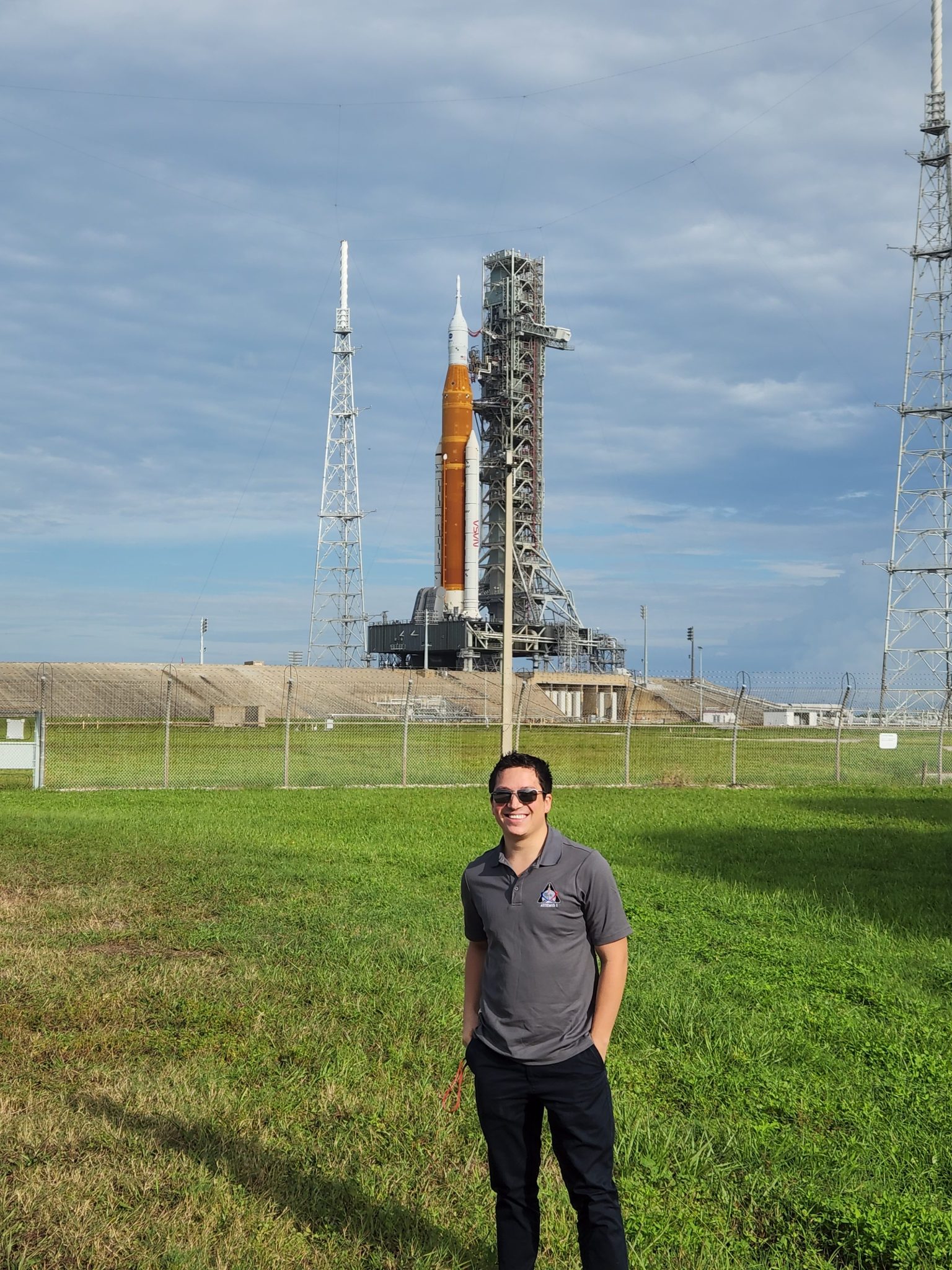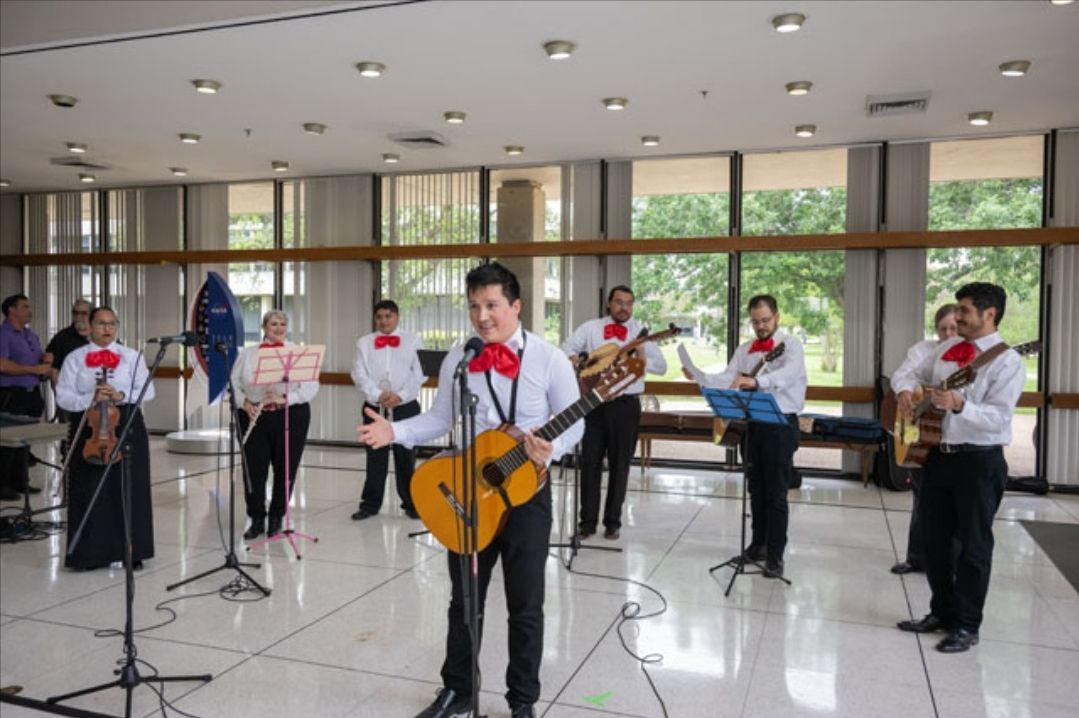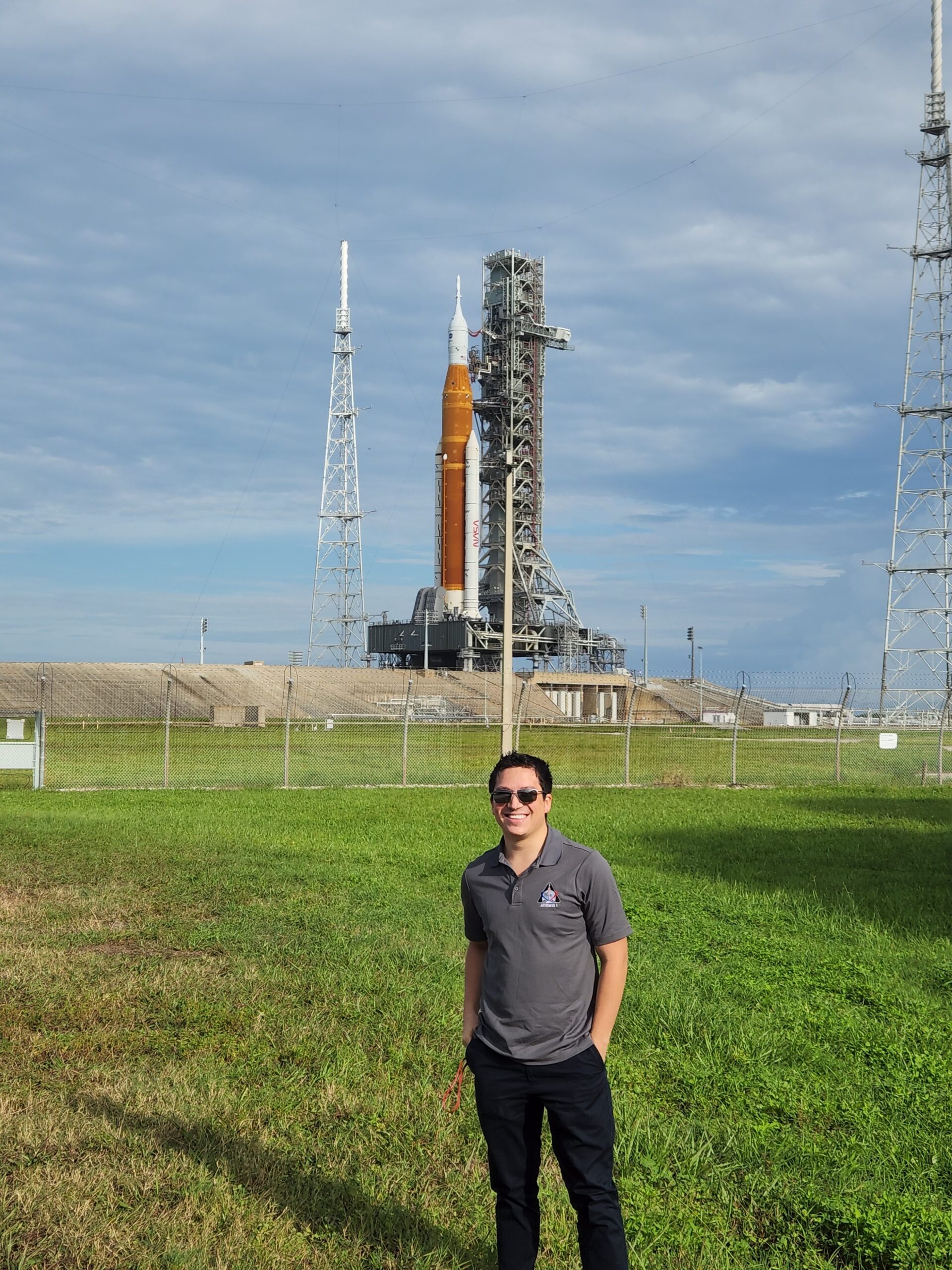Manuel Retana arrived in the U.S. at 15 years old, unable to speak English and with nothing but a dream and $200 in his pocket. Now, he plays a crucial role implementing life support systems on spacecraft that will carry humans to the Moon and, eventually, Mars—paving the way for the next frontier of space exploration.
A project manager for NASA’s Johnson Space Center Life Support Systems Branch in Houston, Retana helps to ensure astronaut safety aboard the International Space Station and for future Artemis missions. His work involves tracking on-orbit technical issues, managing the cost and schedule impacts of flight projects, and delivering emergency hardware.
 Manuel Retana stands in front of NASA’s Space Launch System rocket at Kennedy Space Center in Florida. One of his most notable achievements came during the qualification of the Orion Smoke Eater Filter for the Artemis II and III missions. The filter is designed to remove harmful gases and particulates from the crew cabin in the event of a fire inside the spacecraft. Retana was tasked with creating a cost-effective test rig – a critical step for making the filter safe for flight.
Manuel Retana stands in front of NASA’s Space Launch System rocket at Kennedy Space Center in Florida. One of his most notable achievements came during the qualification of the Orion Smoke Eater Filter for the Artemis II and III missions. The filter is designed to remove harmful gases and particulates from the crew cabin in the event of a fire inside the spacecraft. Retana was tasked with creating a cost-effective test rig – a critical step for making the filter safe for flight.
Retana’s philosophy is simple: “Rockets do not build themselves. People build rockets, and your ability to work with people will define how well your rocket is built.”
Throughout his career, Retana has honed his soft skills—communication, leadership, collaboration, and conflict resolution—to foster an environment of success.
Retana encourages his colleagues to learn new languages and share their unique perspectives. He even founded NASA’s first Mariachi ensemble, allowing him to share his cultural heritage in the workplace.
He believes diversity of thought is a key element in solving complex challenges as well as creating an environment where everyone feels comfortable sharing their perspectives.
“You need to be humble and have a willingness to always be learning,” he said. “What makes a strong team is the fact that not everyone thinks the same way.”
 Manuel Retana, center, performs with the Mariachi Ensemble group at NASA’s Johnson Space Center in Houston. For the future of space exploration, Retana is excited about the democratization of space, envisioning a world where every country has the opportunity to explore. He is eager to see humanity reach the Moon, Mars, and beyond, driven by the quest to answer the universe’s most enigmatic questions.
Manuel Retana, center, performs with the Mariachi Ensemble group at NASA’s Johnson Space Center in Houston. For the future of space exploration, Retana is excited about the democratization of space, envisioning a world where every country has the opportunity to explore. He is eager to see humanity reach the Moon, Mars, and beyond, driven by the quest to answer the universe’s most enigmatic questions.
To the Artemis Generation, he says, “Never lose hope, and it is never too late to start following your dreams, no matter how far you are.”


